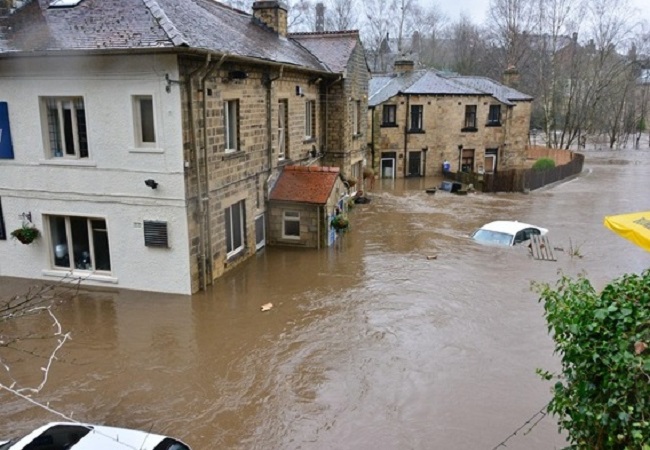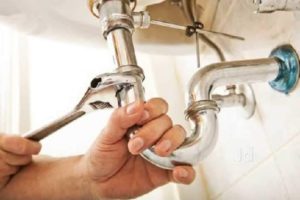When it comes to owning a house, having certain amenities can make a big difference. Electricity is pretty much necessary for a wide range of appliances, from washing machines to electronic devices such as laptops and computers. Gas is what allows us to cook and enjoy a couple of services that, at times, are absolutely necessary for our survival. And of course, water is pretty much essential.
However, water, just like electricity and gas, can become an enemy if we are not prepared for problems related to it. For example, pipes are usually not maintained as much as they should, thus, problems with them are very common, causing things like faulty smells and even leaks.
There are also problems related to roofs, and even structure damages inside of a house, that can also cause leaks, accumulating a great number of problems if left unrepaired for a long time.
Here’s where the term known as water damage enters the play. Water damages can be considered any type of damage related to water, from floods to leaks and even high levels of humidity inside of a house.
How do you handle water damage, though, and what are the most common types of water damages you can encounter? There are various approaches you can take to such situations, such as hiring a service provider like Lightning Water Damage or even preparing for them, and in this article, we will teach you everything you should know about them, to ensure your and your family’s safety.
The Dangers of Water Damages
Damages caused by water can range from mild to severe depending on the gravity of the situation. A leak is often considered a mild problem, but with severe consequences, if left alone for a very long time, from structural damages to damages related to furniture and other elements of the house.
On the other hand, floods are very dangerous events that can cause a lot of immediate damages to a house, not only structural damage but also, damage to many different systems, from the electrical wiring system to the water pipe system. Floods are also very dangerous for people and can risk their lives if not treated with care.
Generally speaking, water damages can also cause problems related to mold. Mold, in case you didn’t know, is a type of fungus that grows when specific requirements are met, and among these requirements, both moisture and darkness are the most common sources of it.
This fungus can ruin houses in many different ways, but it mostly taints the structure of the house and its components. It can also increase the risks of health complications for people dealing with respiratory diseases.
If you end up dealing with a flood, you can follow the steps provided by this article. That being said, there are some considerations you should keep in mind if you end up facing any of the aforementioned situations.
How to Handle Such Problems
The best way to handle water damages depends, of course, on the type of situation at hand. Usually, the more complicated the situation is, the better you are hiring a professional service provider. A good example of this includes things like floods or severe damages caused by mold.
More often than not, hiring a plumber or a similar service provider to deal with water leaks and roofing problems is a very good way to manage the situation. However, there are occasions in which repairing problems related to pipes and roofing can be done by yourself, as long as you either have the patience and the equipment, or the experience and training to deal with it.
On the other hand, if you are only dealing with high levels of humidity and sudden mold growth, there are some techniques you can try to reduce it. Some of them include:
- Improving the flow of air inside your house. Humidity is pretty much the level of water in the air. If you allow the air to flow in a healthy manner, your house will get rid of excessive moisture on its own, like a cycle of air going around your house. The water will eventually leave your house and evaporate, contributing to the water cycle of the earth.
- Enhancing the entrance of sunlight. As mentioned earlier, mold grows in humid and dark places. Sunlight, contrary to artificial light, is capable of reducing the chances of mold growing inside your house, thanks to the heat it creates. This heat reduces moisture in the air, and also, makes it harder for fungus to grow.
- Regularly clean your house. A good way to keep mold in check is by cleaning on a regular basis. By cleaning, you spread and erase mold out of the surface of your house, making it much harder for it to grow and expand.
Why You Should Definitely Hire a Professional
Don’t get me wrong. There are definitely many things you can do by yourself when it comes to house maintenance. However, there are also many things you are most likely incapable of doing without spending time to learn the proper techniques, and without investing money in gear and supplies.
For that reason, when things are very complicated, the best approach you can take is to hire a professional. You not only save a lot of time and effort, but you might also end up saving money since mistakes often complicate things even more, especially if you are dealing with a flood, or trying to erase stains caused by mold.
Not only that, by hiring a professional you are pretty much ensuring the success of the transaction, releasing yourself from the stress of the uncertainty of a repairing project done by yourself. Considering that, at times, dealing with mold stains and floods can be dangerous, this is the best thing you can do to protect yourself, your family, and your home!



